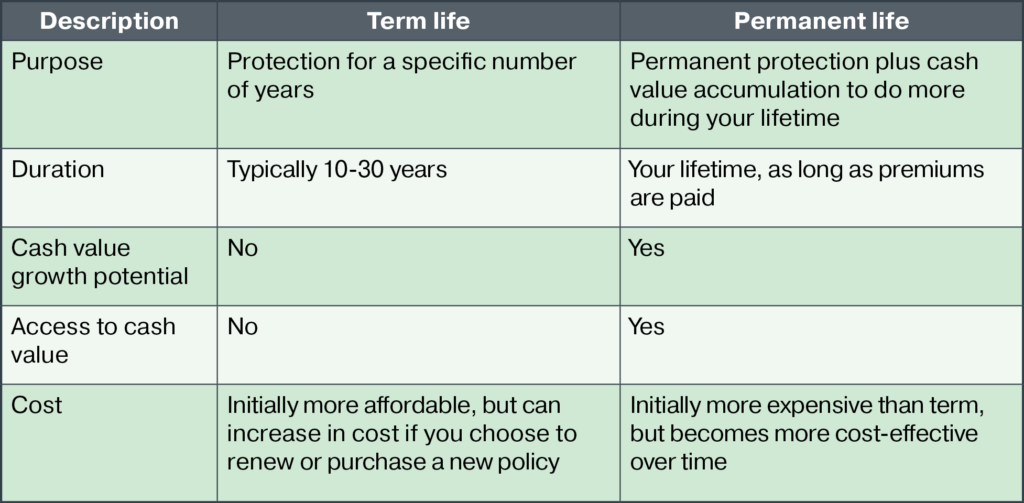Is Life Insurance the Foundation of Your Financial Plan?
Working in financial services, I’m often asked, “What are the key elements of a solid financial plan?” I’ve always felt that the very best financial plans meet a combination of needs and goals. Possibly the best thing about life insurance is that it can provide a solution to a multitude of challenges people face. Some challenges fall in the goals category while others may be considered needs. Regardless of the category, they’re challenges looking for solutions.

Understanding life insurance really comes from not only understanding what it is, but also what it can do for you. Many people don’t realize how flexible life insurance is or that it can serve as an all-in-one solution. You may have many different financial concerns and perhaps be unware that life insurance can actually be a solution for each of them – financial protection, wealth transfer, supplementing retirement income and saving for life’s big milestones. Because of its versatility, life insurance should be a part of every financial plan.
Life insurance isn’t complicated. Having a basic understanding of what it is and how it works can make a big difference in finding the product that provides the best solution for your needs. Let’s start with the facts.
Life insurance provides protection for your family or business.
The death benefit from a life insurance policy can help achieve many goals, such as:
• Ensuring your family is able to maintain their lifestyle
• Transferring wealth to the next generation, income-tax-free
• Keeping a business going
There are two types of life insurance: term and permanent.1

Permanent life insurance can benefit you during your lifetime.
The cash value in a permanent life insurance policy can be used at any time, for any reason, during your lifetime — and, income-tax-free in most cases.1
For example, you can use your policy’s cash value to:
• Pay for a loved one’s college education
• Turn that side hustle into a full-time business
• Fill an income gap in retirement
• Cover unexpected medical expenses
When I hear people contemplate life insurance as a financial product or question the benefits it can offer, I like to remind them that all products exist for a reason. All products, even financial ones, are created to serve a specific purpose. At the end of the day that’s what they do. They provide a solution. Life insurance, just like any other type of insurance, is a promise.2 It’s an agreement that transfers risk from the client to the carrier. It’s an investment in your family’s future to help eliminate the risk that they could one day be left with nothing. Is that a risk you’re willing to take?
The right kind of life insurance, with the right amount of coverage, can help you achieve your goals at every stage of life. Work with your financial professional and talk through your options together.
1Accessing cash value will reduce your policy death benefit and values, may result in certain fees and charges and may require additional premium payments to maintain coverage. Ask your financial professional for details on accessing your cash value, including how it might impact the coverage guarantees and situations when the values you access could be taxable. Always consult your tax advisor before accessing a policy’s cash value.
2The information in this material is for informational purposes only and is not intended as financial, tax or legal advice. Reference to the taxation of products in this material is based on Penn Mutual’s understanding of current tax laws. All guarantees are subject to the claims paying ability of the insurer. Depending on your individual circumstances, the strategies discussed in this presentation may not be appropriate for your personal situation. Always consult your financial, legal or tax professionals.
5433379CC_JAN25






